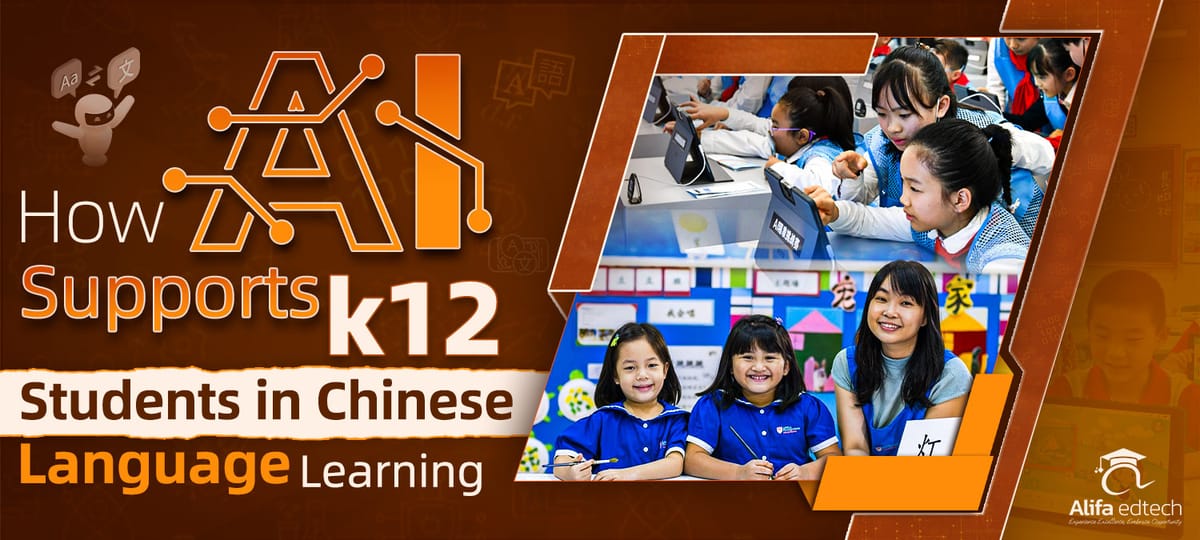Artificial intelligence is transforming education at lightning speed. China's AI education plan for 2025 will transform high school learning. This marks a big step for the world's second-largest economy.
Classrooms are no longer rooms with desks and chalkboards. They're becoming intelligent spaces where technology meets learning. Middle school curricula are changing. They prepare creative talent for a digital future.
Education strategies are evolving at a fast pace. Machine learning, coding, and digital skills are now key, like math and science. School curricula will soon undergo significant changes compared to what parents remember.
What happens when technology becomes a learning partner? When artificial intelligence can personalize education for each student? When secondary school students learn at their own pace, smart tools guide them.
In this article, you will discover:
- 10 critical insights into China's AI education transformation
- How technology will change classroom experiences.
- Strategies to prepare your child for a tech-driven world
Alifa Education Services bridges ed-tech entrepreneurs and policymakers with China's leading AI companies. Get matched with the perfect technology partner for your region.
Book Your Partnership Consultation Today!
Tell us your needs—we'll find your ideal Chinese AI firm match.
The future of learning starts now.
A Comprehensive Look at the AI Education Policy in China
In early 2025, the Chinese government launched its AI education policy. The Ministry of Education is in charge of this initiative. Their mission? To transform basic education through advanced technology.
Chinese universities are designing AI-powered tools that will change how students learn. Think of homework apps that adjust to how fast each student learns. Also, consider online platforms that make lessons fun and engaging. These aren't future dreams—they're happening now.
National guidelines now need schools to integrate digital skills into everyday lessons. Teachers will use technology in teaching methods that make learning more engaging. Students won't memorize—they'll problem-solve using smart educational platforms.
Core competitiveness is the real goal. Schools want to prepare children for a world where technology is everywhere. AI-powered tools won't replace teachers but will help them teach better. Think of these tools as helpful classroom assistants.
What does this mean for your child? Expect:
· Smarter homework assignments
· More interactive classroom experiences
· Learning that adapts to individual needs
· Skills that match future job markets
Parents across the Philippines, Myanmar, Hong Kong, and India can feel excited. China's education system is creating learning experiences that prepare students for tomorrow's challenges.
The future of education is here—and it looks more interesting than ever.
China's 2025 New AI Education Policies: 10 Key Points for K-12 Parents
China's 2025 AI policy will change student learning. It will bring new technology into classrooms nationwide.
10 Key Points Parents Need to Know:
1. Mandatory AI Curriculum
Your child will now learn AI as a core subject. Schools will introduce AI-related courses from primary school grades. Students will learn basic coding, robotics, and how AI works in daily life.
2. Standardized Learning Modules
Expect a comprehensive approach to AI education. Digital learning platforms will provide consistent, high-quality content across different schools. No more learning gaps; every student gets the same advanced technological foundation.
3. Personalized AI Learning Platforms
AI-powered classroom technologies will adapt to your child's learning style. Imagine homework that adjusts in difficulty based on your student's performance. Learning becomes more efficient and engaging, tailored to individual needs.
Want to put your brand in front of families, students, and education-focused readers? We're inviting select partners to advertise with us on our trusted blog.
Want to get featured? Click 'Learn more' and submit a story for us to include.
4. Teacher Training in AI
Schools will upgrade the abilities of teachers through intensive AI training. Educators will learn to use advanced technologies, making lessons more interactive and meaningful. Your child's teachers will become tech-savvy guides.
5. Funding for AI infrastructure
Government investments will upgrade school technology. Demonstration schools will get resources. They will use them to create modern computer labs and AI learning centers. Better tools mean better learning experiences.
6. AI in Core Subjects
Teachers will integrate AI tools into core courses like math, science, and language. Students will use digital platforms to solve complex problems, enhancing critical thinking. Learning becomes more practical and future-focused.
7. AI-Driven Student Assessment
Forget traditional grading. AI will provide more nuanced, holistic evaluations of student performance. Progress tracking becomes more accurate, helping to identify strengths and areas for improvement.
8. Parent Monitoring Tools
You'll get real-time insights into your child's learning process. AI platforms will offer dashboards showing progress, engagement, and skill development. Stay connected with your child's educational journey.
9. Ethical AI Education
Students will learn responsible AI use. Courses will cover digital ethics, data privacy, and the social implications of technology. Preparing responsible digital citizens is a key goal.
10. Career-Oriented AI Learning
AI education establishes a direct connection to future job markets. Students learn skills in new technologies. This prepares them for careers in tech, science, and innovation. Your child's future looks brighter.
China’s AI 2030 Plan: Vision and Goals for the Future
China is set to revolutionize education through ambitious AI strategies. The goal? To get students ready for a fast-changing, tech-driven world. These goals are:
Building a global AI education powerhouse
Chinese universities will create strong, large language models. These models will compete globally. Students will gain digital competence through cutting-edge research. International partnerships will make China a leader in generative AI. This will open new growth opportunities for the global education system.
Skills for the Future
Beyond technology, critical thinking skills become the core of learning. Generative AI tools will help students solve complex problems. Education moves beyond memorization, focusing on creativity, adaptability, and innovative thinking. Students will learn to work alongside AI, not to use it.
Bridging Urban and Rural Educational Gaps
Digital economy growth drives educational equality. Remote areas will access high-quality learning through advanced online platforms. AI-powered tools will bring top-tier education to every corner of China. The technological revolution will not leave any student behind.
Cultivating Innovation Through AI Learning
Classrooms will transform into innovation laboratories. Students will use generative AI technologies to develop real-world solutions. Project-based learning will replace traditional teaching methods. Creativity and problem-solving will become the most valuable skills for future careers.
Transforming Education: From Classrooms to Global Platforms
Learning will break traditional boundaries. International collaborative platforms will connect students worldwide. Cultural exchange meets technological innovation. Students will gain global views and learn advanced digital skills. This will prepare them for a connected future.
Challenges and Concerns Facing Parents Under the New AI Policy
Parents face complex questions about AI's role in education. Concerns range from technology's impact on children's future learning experiences. These challenges include:
Screen Time and Digital Wellness Concerns
Excessive screen time worries parents worldwide. Kids can spend hours on digital devices. This may cut down on their physical activity and social time. Balancing between technology and human interaction becomes crucial. Parents need strategies to manage healthy digital consumption and maintain meaningful personal connections.
To learn more about the services offered by Alifa Education, please visit our dedicated page. Whether you are a guardian, affiliated with an international or bilingual school in China, or a study abroad education agency, Alifa Edtech offers services tailored to your unique needs. Please visit our page to learn more about our offerings.
Data Privacy and Security Risks
Personal information protection is a major concern. How safe is children's learning data? Ethical guidelines must protect student privacy across digital learning platforms. Parents worry about the potential misuse of personal information. Transparency and robust security measures become essential in the new educational environment.
Educational Inequality and Access Challenges
Not all families have equal technology access. Rural and low-income communities might struggle with digital resources. Equity in access remains a significant challenge. Liang Wenfeng calls for focused help for struggling students. This way, the tech learning boom will include every child.
Balancing Human Skills with AI Learning
Challenging classrooms need more than technological tools. Machines cannot replace critical thinking and emotional intelligence. Parents want assurance that human skills remain central to education. The goal is to complement, not replace, traditional learning methods with AI technologies.
Financial Implications of AI Education
Advanced educational technologies come with significant costs. Families in Hong Kong and other Asian countries might find AI-enhanced learning expensive. More hardware, software, and training programs create financial pressure. Parents seek affordable pathways to quality technological education.
Tips for Parents to Support AI Learning at Home
In the digital age, parents play a crucial role in guiding children's tech education. Learning together can transform challenges into exciting opportunities for growth and understanding.
Creating a tech-friendly learning environment
Set up a dedicated learning space with clear boundaries between play and study. Organize digital tools and educational resources with careful planning. Remove distractions and create a comfortable area that sparks curiosity. Make technology feel like a learning adventure, not a chore. Encourage exploration while maintaining structured, supervised digital interactions.
Developing Digital Literacy Together
Digital skills aren't about using devices. Explore coding basics with your child. Learn about AI concepts and discuss how technology works together. Share online courses. Watch educational videos together. Make learning a family activity. Ask questions, show genuine interest, and make technology a shared journey of discovery.
Balancing Screen Time and Interactive Learning
Screen time needs careful management. Set clear daily limits for digital activities. Mix online learning with offline experiences. Encourage physical play, reading, and face-to-face interactions. Use AI tools as supplements, not replacements for real-world learning. Create a healthy balance that supports cognitive and social development.
Encouraging Curiosity About AI Technologies
Foster an open mindset towards technological innovation. Ask your child about their thoughts on AI. Watch documentaries, attend tech workshops, and explore interactive science museums. Share age-appropriate stories about technological breakthroughs. Make AI feel exciting and approachable, not intimidating or complex.
Building Critical Thinking in the Digital Age
Teach children to question and analyze digital information. Discuss the difference between facts and misinformation. Practice evaluating online sources together. Encourage problem-solving skills and creative thinking. Show them that AI is a tool. It does not replace human creativity or critical thinking.
Conclusion
Education transforms through intelligent technologies. China's 2025 policies mark a profound shift in learning paradigms. Innovative talent emerges from dynamic education strategies. Students will develop core competitiveness by embracing technological tools and human creativity. Learning outcomes will reflect a deeper understanding. Classrooms become spaces of exploration, where artificial intelligence meets human potential. Knowledge evolves at a fast pace. One cannot overstate the crucial role of adaptability. Future generations will navigate complexity with confidence and curiosity. Challenges will emerge. Progress always brings uncertainty. But opportunity lies within every technological breakthrough. The journey continues. Learning never stops.
Ready to take the next step in your child’s education journey? Alifa Education Services helps you discover top junior and secondary schools in China. We help families every step of the way. We handle school selection, visa support, and ongoing care. This makes the process easy and stress-free. Let’s give your child the best start. Book a free consultation today!
Related Articles














Member comments